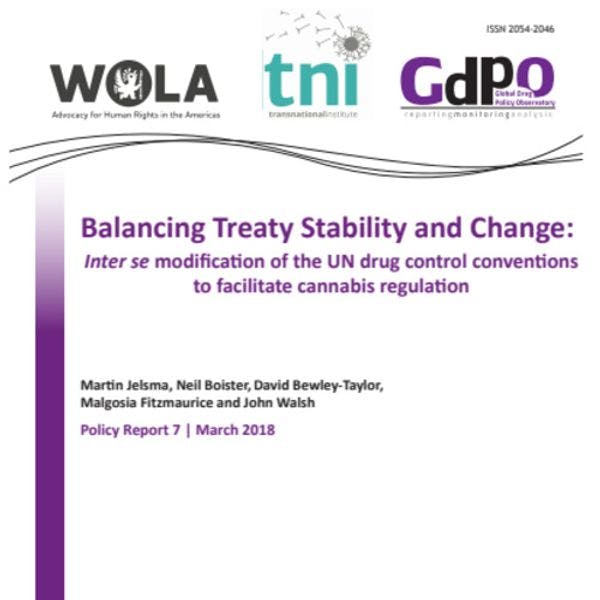Un équilibre entre stabilité et changement pour les traités sur la drogue
La modification « inter se » offre une soupape de sécurité pour permettre des ajustements au régime onusien de contrôle des drogues. Pour en savoir plus, en Anglais, veuillez lire les informations ci-dessous.
Legal tensions are growing within the international drug control regime as increasing numbers of member states or jurisdictions therein move towards or seriously consider legal regulation of the cannabis market for non-medical purposes, a policy choice not permitted under the existing UN legal framework.
Reaching a new global consensus to revise or amend the UN drug control conventions to accommodate cannabis regulation, or that of other psychoactive plants and substances currently scheduled in these treaties, does not appear to be a viable political option in the foreseeable future.
The application of dubious or ‘untidy’ legal arguments to accommodate regulated cannabis markets does little for the integrity of the regime, undermines respect for international law more broadly and is not sustainable.
Appealing to human rights obligations can provide powerful arguments to question full compliance with certain drug control treaty provisions, but does not in itself resolve the arguable conflict between different treaty obligations.
States may wish to adopt a stance of respectful temporary non-compliance as they pursue legally valid and appropriate options for the re-alignment of international obligations with domestic policy.
Amongst reform options not requiring consensus, inter se modification appears to be the most ‘elegant’ approach and one that provides a useful safety valve for collective action to adjust a treaty regime arguably frozen in time.
Téléchargements
Sujets
Régions
Profils associés
- Global Drug Policy Observatory (GDPO)
- Transnational Institute (TNI)
